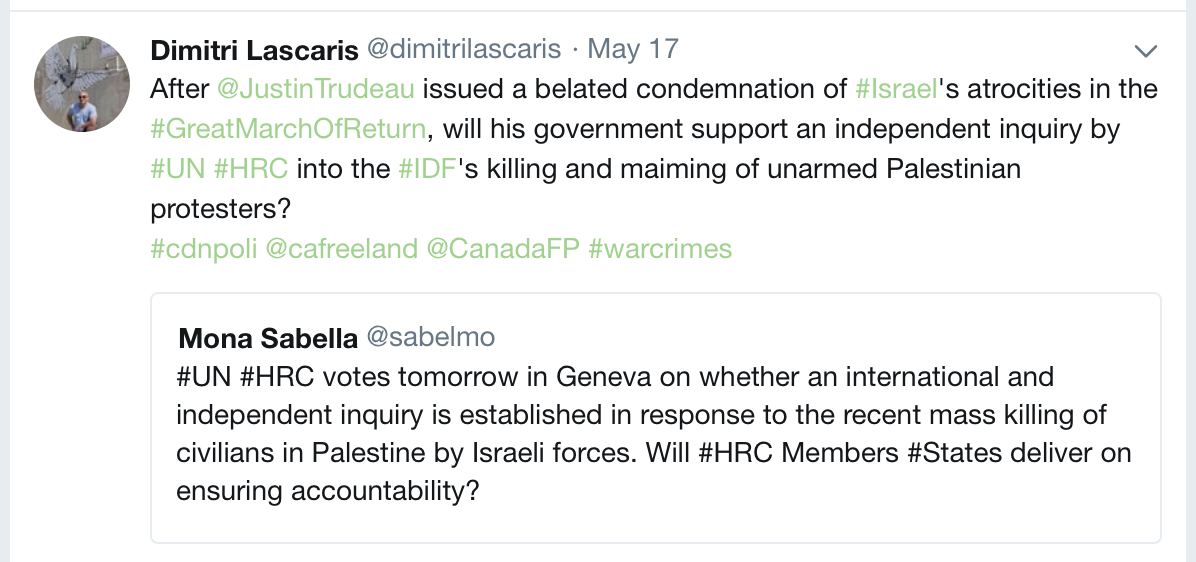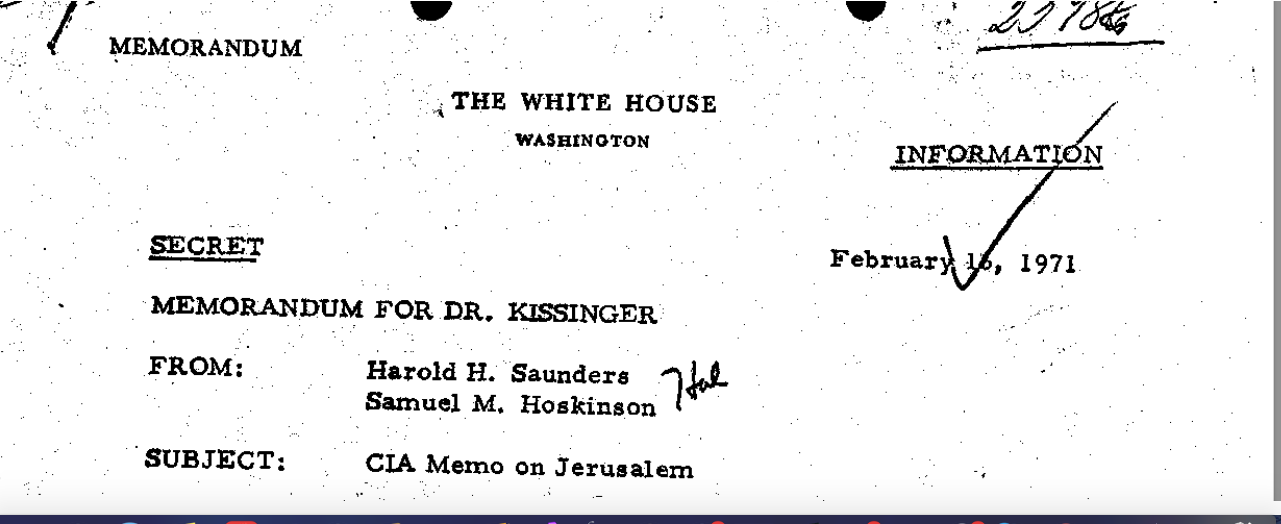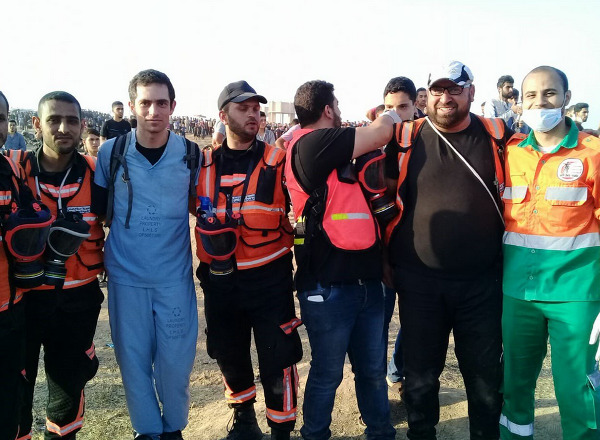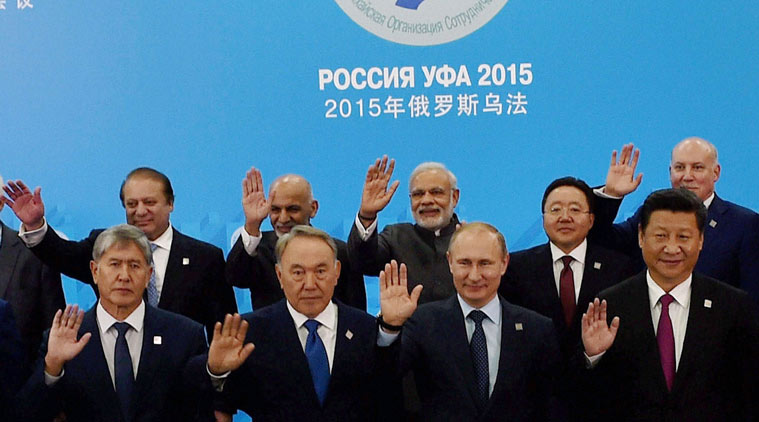Can We Call It a Coup Now?
May 22nd, 2018 by Mike Whitney
After 18 months of withering attacks and accusations, Donald Trump has decided to get up off the canvas and fight back. In a series of tweets stretching from Sunday night to early Monday morning, Trump announced that he would launch his own investigation to see whether the FBI and DOJ had improperly targeted his campaign for “political purposes”.
“I hereby demand, and will do so officially tomorrow, that the Department of Justice look into whether or not the FBI/DOJ infiltrated or surveilled the Trump Campaign for Political Purposes – and if any such demands or requests were made by people within the Obama Administration! Donald Trump, @realDonaldTrump, Twitter, Sunday, May 20
It’s a gutsy move by Trump but one that could backfire quite badly. By demanding an investigation of the DOJ and FBI, the president is asking those agencies to willingly reveal their own transgressions, to produce the documents and other information that could potentially expose many of their own people (Obama holdovers) to criticism or even criminal prosecution. It’s hard to believe that many career bureaucrats would want to assist Trump in an effort that could potentially damage their colleagues or the reputation of their own department.
In any event, Trump has decided to throw caution to the wind and go for broke. He’s decided that the only way he’s going to get his enemies off his back is by flushing them out into the open and subjecting their activities to public scrutiny. It’s a risky strategy, but the scrappy New Yorker seems to think he can pull it off without a hitch. Here’s another late-night tweet from Trump:
Reports are there was indeed at least one FBI representative implanted, for political purposes, into my campaign for president. It took place very early on, and long before the phony Russia Hoax became a “hot” Fake News story. If true – all time biggest political scandal! Donald Trump, @realDonaldTrump, Twitter, May 18
Is he right? Did the FBI place a mole inside the campaign to gather information on Trump and his aids? Because, if they did, then this is bigger than Watergate, in fact, it would be the biggest political corruption scandal in history. According to the New York Times, however, Trump’s got it all wrong. There was no spy inside the campaign, there was a trusted informant who was trying to gather information from individual members of the campaign. There’s a big difference. But whether the informant was inside or outside, the fact remains that the FBI launched a counterintelligence operation against the rival party’s presidential campaign in order to gather information that was intended to damage, discredit or incriminate the targets of the operation. That’s the bottom line, isn’t it? The nation’s top law enforcement agency, operating on orders from god-knows-who (Obama?), was engaged in a plot to gain an unfair advantage in the election, undermine the two-party system and sabotage the democratic process. Trump may have misstated the details but the basic facts remain the same. Here’s an excerpt from the article in the Times:
“President Trump accused the F.B.I. on Friday, without evidence, of sending a spy to secretly infiltrate his 2016 campaign “for political purposes” even before the bureau had any inkling of the “phony Russia hoax.”
In fact, F.B.I. agents sent an informant to talk to two campaign advisers only after they received evidence that the pair had suspicious contacts linked to Russia during the campaign. The informant, an American academic who teaches in Britain, made contact late that summer with one campaign adviser, George Papadopoulos, according to people familiar with the matter. He also met repeatedly in the ensuing months with the other aide, Carter Page, who was also under F.B.I. scrutiny for his ties to Russia.” (“F.B.I. Used Informant to Investigate Russia Ties to Campaign, Not to Spy, as Trump Claims ” New York Times)
The Times is technically right, but their hair-splitting defense misses the point altogether. It’s up to the FBI to prove that their extremely-suspicious and perhaps illegal activities were justifiable. And whatever excuse the Bureau eventually settles on, it should not have anything to do with Russiagate since that bogus probe has been a ‘dry well’ from the get-go and hasn’t produced even a scintilla of hard evidence in more than a year and half. The FBI needs to come clean and explain what was really going on behind the scenes. What’s this all about? Clearly, the informant wasn’t talking to gasbag Papadopoulos because he thought he’d uncover a link between Putin and Trump, but because his disjointed braggadocio would help him build a case against the president. That what’s really going on, it’s plain as the nose on your face. The FBI was using the Russia pretext to gather damaging and possibly incriminating dirt on Trump. The obvious objective was to prevent Trump from being elected and then, afterwards, to remove him from office. This is from The Hill on Monday:
“The Department of Justice (DOJ) has asked its inspector general to look into whether the FBI surveilled President Trump’s campaign for “inappropriate purposes.”
“If anyone did infiltrate or surveil participants in a presidential campaign for inappropriate purposes, we need to know about it and take appropriate action,” Deputy Attorney General Rod Rosenstein said in a statement.” (DOJ asks watchdog to probe Trump campaign surveillance claims, The Hill)
Got that? So deep-state Rod is going to sort this mess out and let us all know if there’s been any funny business or not. What a joke. The man is so conflicted he should have been removed months ago. It was Rosenstein who wrote the 3-page memo that persuaded Trump to dump Comey after which he quickly appointed Robert Mueller as Special Counsel using the ‘firing of Comey’ as his justification. That might the sleaziest political switcheroo I’ve seen in my lifetime.
And notice how carefully Rosenstein chooses his words like an ambulance-chasing barrister inveigling an injured client. He says,
“If anyone did infiltrate or surveil participants in a presidential campaign for inappropriate purposes, we need to know about it and take appropriate action,”

Okay, so who decides what is appropriate or inappropriate? The Inspector General or our buddy Rosenstein who’s going to do everything in his power to hide the smoking gun. In any event, that doesn’t change the fact that the campaign was infiltrated by at least one informant who tried to wrangle as much information as possible out of his targets. Which brings us to the case of Stefan Halper (image on the right), “the 73-year-old Oxford University professor and former U.S. government official” who “was outed as the FBI informant ” and who “was paid handsomely by the Obama administration starting in 2012 for various research projects.
….Halper was enlisted by the FBI to spy on several Trump campaign aides during the 2016 U.S. election…..while a search of public records reveals that between 2012 and 2018, Halper received a total of $1,058,161 from the Department of Defense.” Here’s more from an article at Zero Hedge:
“The most recent award to Halper for $411,575 was made in two payments, and had a start date of September 26, 2016 – three days after an… article by Michael Isikoff about Trump aide Carter Page, which used information fed to Isikoff by “pissgate” dossier creator Christopher Steele….
The second installment of Halper’s 2016 DoD contract is dated July 26, 2017 in the amount of $129,280 – around three months before the FISA warrant on Carter Page was set to expire following repeated renewals signed by Deputy AG Rod Rosenstein and a federal judge….
Halper’s July 28 email to Page – sent two days after the second portion of his contract kicked in, suggests that the espionage operation against Trump associates was still active seven months into the new administration….
Following Halper’s doxxing, President Trump called for an official investigation by the Department of Justice -” (“FBI Informant Stefan Halper Paid Over $1 Million By Obama Admin; Spied On Trump Aide After Election”, Zero Hedge)
And here’s more on Halper from the WSWS:
“The choice of Halper for this spying operation has ominous implications. His deep ties to the US intelligence apparatus date back decades. His father-in-law was Ray Cline, who headed the CIA’s Directorate of Intelligence at the height of the Cold War. Halper served as an aide to Donald Rumsfeld, Dick Cheney and Alexander Haig in the Nixon and Ford administrations.The revelations of the role played by Halper point to an intervention in the 2016 elections by the US intelligence agencies that far eclipsed anything one could even imagine the Kremlin attempting.” (“Long-time CIA asset named as FBI’s spy on Trump campaign”, Bill Van Auken, World Socialist Web Site)
Maybe the Halper connection is a big nothingburger for which there is some perfectly logical explanation, but, seriously, does anyone really think this passes the smell test??
Let’s cut to the chase: When we look at the long list of potential felonies committed by the Obama team– including bogus FISA warrants, wiretaps, improper unmasking, questionable surveillance on campaign members, and, now, paid informants dredging up whatever dirt they can find on the newly-elected government, we are left scratching our heads wondering, “Is this really America? What on earth were these people thinking??” Here’s how political analyst Nick Short sums it up in a recent comment on Twitter:
“FBI opened a CI (CounterIntelligence) investigation in the absence of any (a) incriminating evidence, or (b) evidence implicating the Trump camp in Russian espionage. The FBI collaborated w/ CIA to probe an American political camp using foreign-intel surveillance & informants. Bigger than Watergate…” @PoliticalShort
Bingo. Any reasonable person would naturally assume that the informant was being used to gain an unfair advantage in the election by gathering privileged information that could be used against the targeted party or its candidates. (aka–Trump) In other words, we must disabuse ourselves of the idea that the perpetrators of this counterintelligence operation, were at all focused on the fictitious “Russia” angle. There’s no proof of that whatsoever. There is, however, considerable circumstantial evidence that a cabal of senior-level government officials, Intel agents, law enforcement officers, and high-ranking members of the DNC were using their access to the extraordinary powers of state surveillance to sabotage the democratic process, undermine the two-party system and topple the elected government. Unlike the Times, which seems to think these goings-on are just a harmless blip on the radar, we believe that this naked attempt to decimate the two-party system and reinforce the malign grip of unseen corporate oligarchs is actually the most egregious political crime of the century. Here’s how Barry Grey sums it up at the World Socialist Web Site:
“The recent press reports add to a wealth of information showing that the US intelligence and spy agencies, operating behind the backs of the American people and without any democratic accountability, manipulated the 2016 elections on a scale that massively outweighed anything Moscow could have attempted.
The real threat to the democratic rights of the American people comes not from Russia or foreign terrorists, but from the US government itself, which is completely controlled by a vast military/intelligence complex allied to the financial oligarchy. Both major parties are beholden to this “deep state” machine for surveillance and repression.
The Democratic Party evinces not the slightest concern or opposition to this police state apparatus. Its ringing defense of the FBI and CIA coincides with its critical role in supplying the votes necessary to confirm “black site” torturer Gina Haspel as CIA director earlier this week.” (“Democrats defend FBI following reports it spied on Trump’s election campaign”, Barry Grey, World Socialist Web Site)
Right again. This is not a Dems vs Republicans issue, at least, it shouldn’t be. It’s about the unelected cabal that operates behind the cloak of partisan politics to exert its stranglehold on political power. As comedian George Carlin said,
“The parties exist to make you think you have a choice. But you have no choice. You have owners, and they own everything.”
Russiagate was merely the paper-thin pretext this secretive group settled on to launch its attack on the candidate who was never supposed to win the election. Here’s more from the NY Times:
“F.B.I. agents sent an informant to talk to two campaign advisers only after they received evidence that the pair had suspicious contacts linked to Russia during the campaign….The role of the informant is at the heart of the newest battle between top law enforcement officials and Mr. Trump’s congressional allies over the F.B.I.’s most politically charged investigations in decades. The lawmakers, who say they are concerned that federal investigators are abusing their authority, have demanded documents from the Justice Department about the informant.
Law enforcement officials have refused, saying that handing over the documents would imperil both the source’s anonymity and safety. The New York Times has learned the source’s identity but typically does not name informants to preserve their safety.” (“FBI used informant to investigate Russia ties to Campaign, Not to spy, as Trump claims”, New York Times)
Translation– The FBI and DOJ are stonewalling Congress. They’re preventing Congress from getting the documents they need to fulfill their constitutional duty of oversight. The documents they need will likely reveal information that proves that senior-level officials were spying on the Trump campaign to gain an unfair advantage in the elections. Congress needs the documents to establish whether officials or agents at the FBI, CIA or NSA were involved in a conspiracy to torpedo the Trump campaign or (later) topple the President. Here’s more from the Times:
“Democrats say the Republicans’ real aim is to undermine the Special Counsel investigation.”
Special Counsel’s credibility has already been severely eroded by its obvious bias in carrying out a politically-motivated agenda that has been used to cast a cloud of suspicion around the president while producing no hard evidence that these suspicions are warranted. It’s worth noting, that the current Russia investigation is based on the dubious claim that Russia hacked DNC computers. As Andrew C. McCarthy points out in his excellent article at National Review, that’s pretty thin gruel. Here’s what he says:
“It has now been confirmed that the Trump campaign was subjected to spying tactics under counterintelligence law — FISA surveillance, national-security letters, and covert intelligence operatives who work with the CIA and allied intelligence services. It made no difference, apparently, that there was an ongoing election campaign, which the FBI is supposed to avoid affecting; nor did it matter that the spy targets were American citizens, as to whom there is supposed to be evidence of purposeful, clandestine, criminal activity on behalf of a foreign power before counterintelligence powers are invoked.
But what was the rationale for using these spying authorities?
The fons et origo of the counterintelligence investigation was the suspicion — which our intelligence agencies assure us is a fact — that the Democratic National Committee’s server was hacked by covert Russian operatives. Without this cyber-espionage attack, there would be no investigation. But how do we know it really happened? The Obama Justice Department never took custody of the server — no subpoena, no search warrant. The server was thus never subjected to analysis by the FBI’s renowned forensics lab, and its evidentiary integrity was never preserved for courtroom presentation to a jury…..
So, yes, the entire “Russia hacked the election” narrative the nation has endured for nearly two years hinges on the say-so of CrowdStrike, a private DNC contractor with significant financial ties to the Clinton campaign.” “In Politicized Justice, Desperate Times call for Desperate Measures”, Andrew C. McCarthy, National Review
So the FISA surveillance, the national-security letters, the FBI informants and 18 months of relentless probing-harassment have all been justified on the basis of allegations about Russia hacking that may or may not have happened at all??
Yep. Like we said earlier, it’s pretty thin gruel.
More from the Times: “No evidence has emerged that the informant acted improperly when the F.B.I. asked for help in gathering information on the former campaign advisers, or that agents veered from the F.B.I.’s investigative guidelines and began a politically motivated inquiry, which would be illegal.” (New York Times)
What sort of nonsense is this?? The “informant acted improperly” the minute he infiltrated the Trump campaign with the intention of gathering information on the rival party. Is the Times really trying to make the case that spying on one’s political opponent is morally, ethically or legally acceptable??
It’s ridiculous. This is just a feeble attempt to protect the informant from prosecution which he will undoubtedly face when he’s forced to testify before a grand jury and provide details of his employment including who gave him his assignment, what information was he gathering (and on who), and what other government officials or agency chiefs were involved in the counterintelligence operation aimed at sabotaging the election? (We already know that former CIA boss John Brennan originally referred the case to the FBI, so we’re convinced that he is the one who got the ball rolling.)
The fact that the informant has been exposed is just the first step in a long process that will (hopefully) reveal the machinations of the deep state apparatus and its connection to behind-the-scenes corporate mandarins, the real puppetmasters in this political fiasco.
One last blurb from the Times:
“According to people familiar with (General Michael) Flynn’s visit to the intelligence seminar, the source was alarmed by the general’s apparent closeness with a Russian woman who was also in attendance. The concern was strong enough that it prompted another person to pass on a warning to the American authorities that Mr. Flynn could be compromised by Russian intelligence, according to two people familiar with the matter.”
Got that? Flynn talked to a Russian woman at a seminar and the Times thinks that’s sufficient grounds for ‘tailing’ him or infiltrating the Trump campaign or issuing FISA warrants or National Security letters or collecting all-manner of electronic surveillance on Trump’s former campaign chairman or appointing a Special Counsel to snoop around in the elected government’s private affairs or saturating the airwaves with fake news stories for the better-part of 18 months. Where does it stop or is Russia going to be the all-purpose excuse for government misbehavior until we’re all locked up in Gitmo under 24-hour surveillance?? Would the editors of the Times find a justification for that, too?
We’re pretty sure they would.
The reason the Times released this article on a Friday night, when everyone was focused on the Royal wedding, was to minimize the political fallout. They wanted to see the public’s reaction, but they wanted to limit the circulation. They wanted to see if they could still control the narrative in lieu of damning new details that had surfaced. Most of all, they wanted to see if they could still divert people’s attention from the fact that a powerful group of government insiders and their junta-allies at the DNC have been engaged in a coup d’état to roll back the 2016 elections and remove the president from office. It’s getting harder to hide the truth all the time.
*
This article was originally published on The Unz Review.
Mike Whitney is a frequent contributor to Global Research.



































































